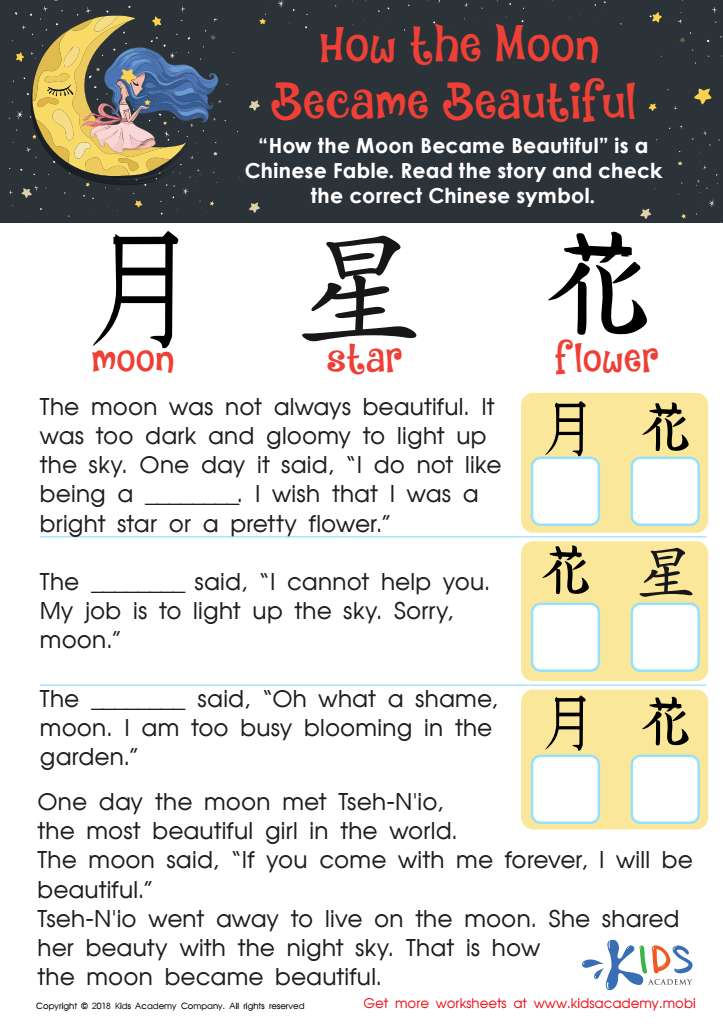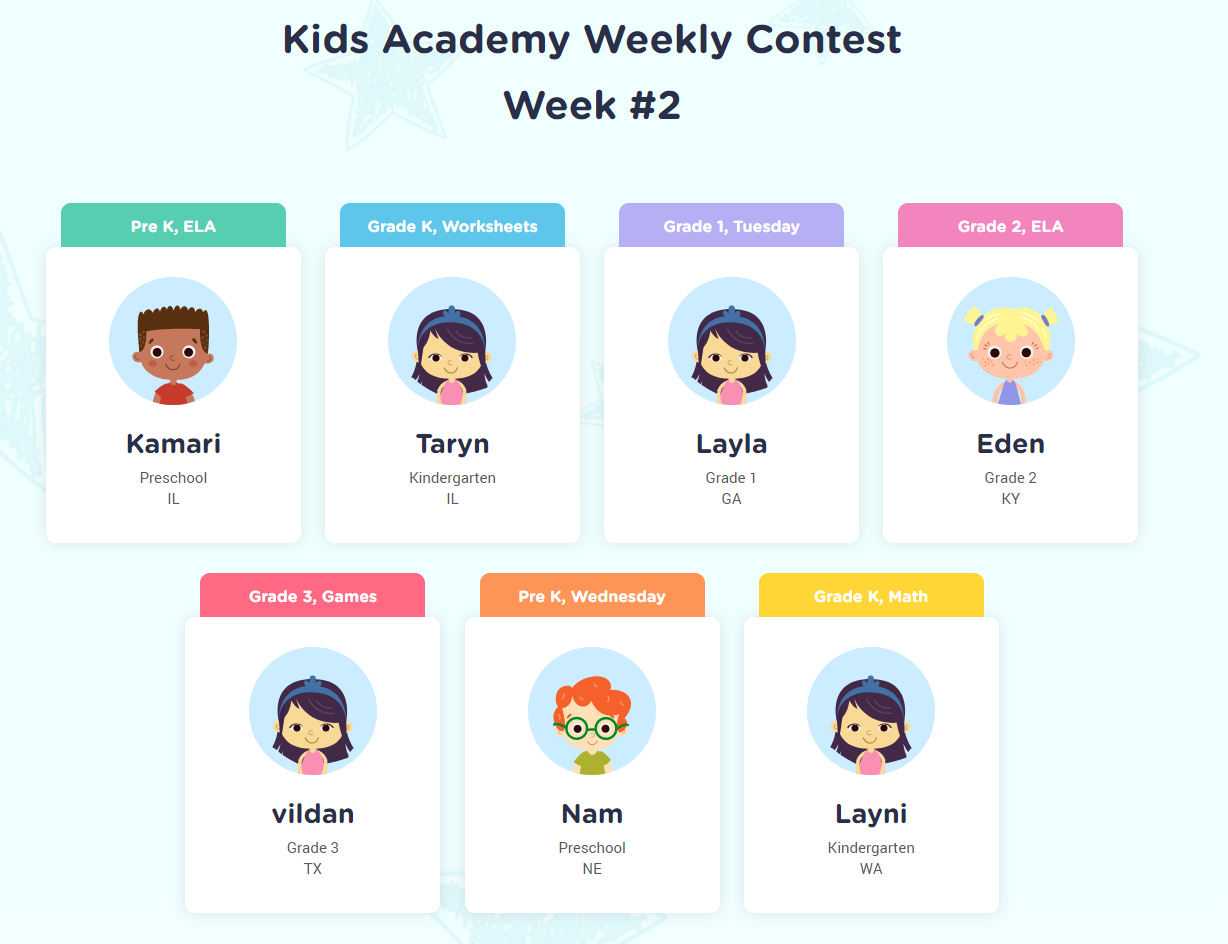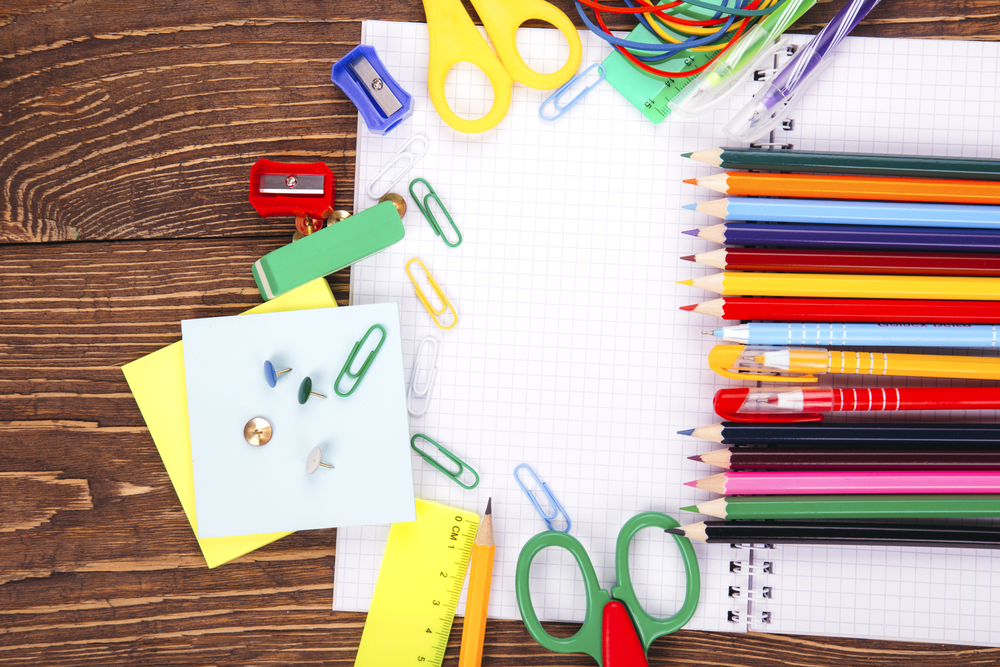Reflective thinking Worksheets for Kids
1 filtered results
-
From - To


How the Moon Became Beautiful Worksheet
Question/Answer
How to test a Grade 1 student’s Reflective thinking skills?
To test a Grade 1 student's reflective thinking skills, present them with a simple story or scenario and ask them to predict what might happen next, explain why certain events occurred, or suggest alternative outcomes.
How does the mastery of the Reflective thinking skill affect a student's performance at an early age?
The mastery of reflective thinking at an early age significantly enhances a student's performance by promoting critical thinking, problem-solving skills, and deeper understanding of content. It enables students to analyze their learning process, identify strengths and weaknesses, and apply new strategies for improvement, leading to academic success and effective adaptation to new learning challenges.
What are some effective activities to train students’ Reflective thinking skill when teaching them about Reading Fiction?
Effective activities to train students' reflective thinking skill in reading fiction include: journaling personal responses to the text, conducting structured peer discussion groups, implementing Socratic seminars focused on open-ended questions, engaging in role-playing exercises to explore characters' perspectives, and creating visual mind maps to trace themes and character development. These activities encourage deep analysis and personal connection to the material.
 Assign to the classroom
Assign to the classroom












